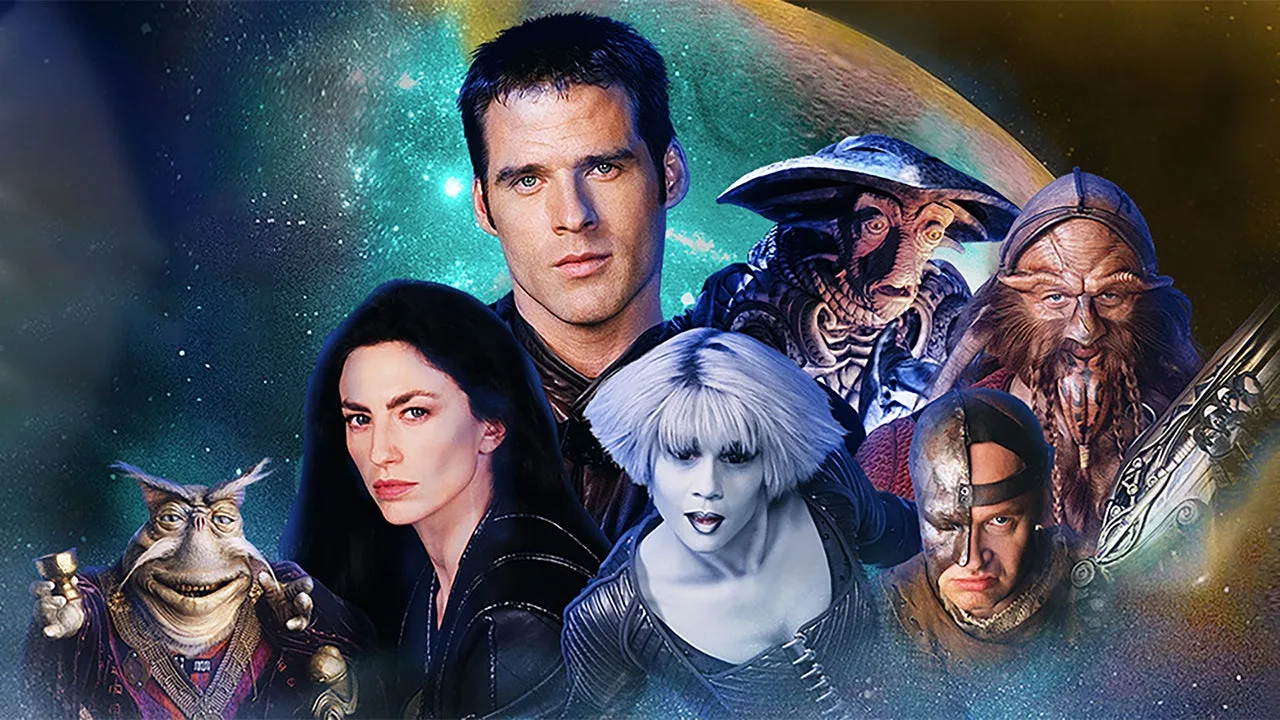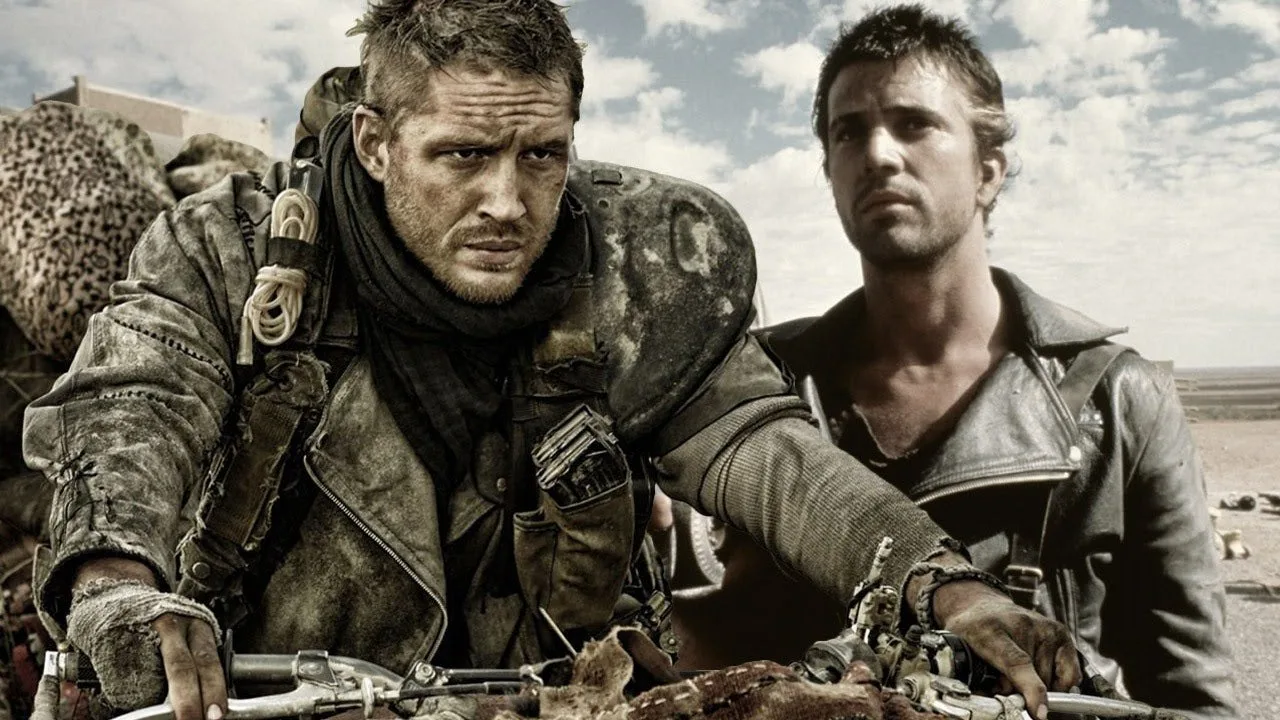Television fans of space-based science fiction were gifted quite a gem on March 19, 1999. Farscape, created by Rockne S. O’Bannon and Brian Henson, was the first original series for the still-young Sci-Fi Channel. An ambitious, original premise that took “hoo-man” astronaut John Crichton (Ben Browder) and wormholed him to the furthest reaches of the Milky Way, where he became the “other” amongst a cast of new alien races. Using prosthetics, puppetry and animatronics, Farscape was unlike anything else in sci-fi television.
Its reduced cable footprint meant it got a smaller share of the audience, but the tradeoff was huge creative freedom. Farscape helped sweep in a fresh creative era for this particular subgenre, with other seminal series like Enterprise (2001), Firefly (2002) and the reboot of Battlestar Galactica (2003) following soon after. While those other shows may get more namechecks in the media, the 25th anniversary of Farscape this week is a reminder of just how groundbreaking and unique the series was – and remains.
Space Science Fiction With a ‘Loose Screw’
In the ’90s, if you wanted space television, there was Star Trek or Babylon 5. As a fan of the genre, Brian Henson told IGN that he wanted to introduce something else to the world: “I’ve always been a huge fan of science fiction, and we’ve never done science fiction as a company, and I really wanted to. So that was what set us on the path that became Farscape.
“What we were trying to do back then was kind of break the mold,” Henson said of the series’ concept. “The biggest show was Star Trek, for sure. And Star Trek had taken a vision of the future where people are in much more control of their emotions, and they’re more efficient in their communication. They feel like an elevated human being when you watch people interacting on the Star Trek shows. We really wanted a completely different feel and tone.”
O’Bannon and Henson started with a premise called Space Chase in the early ’90s that then distilled into Farscape. Astronaut John Crichton would be the audience’s eyes into a part of the galaxy unknown by humans, where living spaceships like Moya are a natural evolution to technology, and other alien races have no respect for Earth or its unimpressive residents.
“As the pieces all started to come together, particularly the Australian cast at the top of the list, we just saw that we had lightning in a bottle,” O’Bannon said of the vibe of the show. “The incredible freedom that we had, thanks to the Sci Fi Channel who picked us up in the States… You know, the president of Sci Fi who had [originally] bought the show had moved on. Someone else came in and thought he was inheriting essentially a kids show from the Henson Company. So he just said, ‘Make it as weird as you can,’ which are words that A) I had never heard before, and B) you really need to be careful when you say that to me, as I did exactly that,” he laughed.
He just said, ‘Make it as weird as you can.’ -Rockne S. O’Bannon
“In the pilot, we referenced Rygel and that he farts helium,” O’Bannon said to prove their creative freedom. “That’s something I had conceived of, but had not put in the pilot,” he laughed. “But the minute I walked out of that meeting, that was the first thing I did and helium became the watchword for everything we did after that.”
For budgetary reasons, Farscape was shot in Australia with a primarily Australian crew and cast, except for O’Bannon, Henson, Browder and some of the writing staff.
“It was the perfect confluence of cast and our writing staff all had the same loose screw,” O’Bannon joked. “Shooting in Australia was, I think, hugely important not only because of the actors, but also all the artists. The Australian sensibility was a huge contributor. You really felt like you were in an alien world because it was an American show, written by Americans, with an American lead in Ben Browder. But the tone and just the look of it was something that was not like something you were seeing on other science fiction shows at the time. To me, that was incredibly important.”
Characters That Were Weird, on Purpose
A major premise point of Farscape that put some viewers on the back foot was that the strapping, handsome astronaut wasn’t really the hero of the piece. In the eyes of the rag-tag alien crew of Moya, Crichton was the idiot they tolerated. Akin to a space version of Kurt Russell’s Jack Burton in Big Trouble in Little China, Browder embraced the dichotomy and leaned into the comedy of his character being wrong a lot.
“Early on in the writers’ room, they would try to make him the captain,” O’Bannon remembered. “And I said, ‘No, He’s the least effective, not the most. He doesn’t know how anything works.’ Him, being very human, as the metaphor goes, put the knife between his teeth and dove into the pool of snakes. But it forced the character to learn a lot too.”
And Crichton doesn’t stay funny. As he gets more immersed in his new home, crossing the Uncharted Territories, Browder said the character got plenty dark across the course of the series’ run. “If you look at Bryan Cranston in Breaking Bad, he was essentially a person with a certain amount of competency who goes down a dark path,” Browder pointed to as a comparison. “That kind of character is something that we’re used to now. But that wasn’t something that we had seen on television, full stop. Certainly not in science fiction television prior to 1999 to 2004 with Farscape.”
The female characters on the series — like renegade Peacekeeper officer Aeryn Sun (Claudia Black), Delvian empath Zhaan (Virginia Hey) or the ever unhinged Nebari thief Chiana (Gigi Edgley) — were also ahead of their time in terms of their autonomy and diversity in the narrative.
Early on in the writers’ room, they would try to make Crichton the captain. And I said, ‘No, He’s the least effective.’ -Rockne S. O’Bannon
“The girls, we were strong together,” Edgley confirmed. “The [directors] were always open to ideas. It was a whole collaboration of really wanting the show to be as huge as it was in our hearts and our minds and our souls, and that it actually got to that level, it was very refreshing to get some kickass, sci-fi goddesses,” she laughed.
And Chiana with her complex background and striking monochrome look was entirely unpredictable as a scrappy fighter who was always challenging those around her. “She was real. She was a mess,” Edgley said of her character. “It was a beautiful conundrum that you constantly saw her trying to figure out what love is about and figuring out what trust is about. Like the times when the shipmates showed her love or friendship, it was fantastic for me to really explore different ideas in how to receive that because it was a character that had been trying to survive in the Uncharted Territories. Being beaten, being manhandled in more ways than one, being really tortured, she was really messed up. It was fun to play someone so uncapped that was just all over the shop.”
Farscape’s Legacy… and Future?
For all of its four-season run, Farscape suffered from a smaller cable audience and an inconsistent airing schedule. But those who found it adored it, and created around the show a passionate fandom which in turn helped O’Bannon and Henson finally get their The Peacekeeper Wars miniseries made two years after the series’ cancellation. The two-parter gives closure to their story and characters.
Since 2004, there has been constant talk about Farscape returning in some capacity. O’Bannon continued the storytelling with a Boom Studios comic book series and has drafted an unproduced film screenplay and a continuation series concept.
“We actually got waylaid for quite a while trying to write a movie,” Henson said. “What we realized is to deliver on all of the promises of Farscape, we couldn’t figure out how to do it in less than four hours. There’s so many elements that you need to do that [are] complex [that…] we can’t fit it in a movie. So, we would love to do a series, or a mini-series.”
O’Bannon expanded, “One of the most important things for me is 1) don’t rest on your laurels. And 2) is that the reason why people find and embrace Farscape — and they always have — is that it was outrageously bold and completely unpredictable. Any new incarnation of it, those to me are the watchwords. There’s the romance, and obviously the wild alien creatures and reversals so no one was ever safe. Anyone could be taken out and loyalties would shift. But to me, at the core of it is the unpredictability of it, and the fact that you just go, ‘I can’t believe they just did that.’ To the degree that we can recreate that, that would certainly be my mission.”
And if it doesn’t happen, Farscape’s enduring standing in science fiction television isn’t lost on any of them. From an industry standpoint, Henson is particularly happy to see the show’s DNA present in more recent sci-fi properties.
“As soon as you saw the new Star Trek movies, they basically styled the young James Kirk right after what Ben was doing with John Crichton,” Henson cited. “And then Guardians of the Galaxy, those filmmakers have always been terrific and very publicly credited us to say, ‘We took the Farscape tone and that’s what we’re creating in.’ So I do feel like over the years, definitely within the industry, we did get recognition within the science fiction world.” (Browder even had a guest role in Guardians Vol. 2.)
“I think the more people discover it, the more opportunity there is for, I hate to say legendary status, but its status as a show to reveal itself,” O’Bannon added. “Like working with the animatronics and then the puppetry that the Henson Company does, and introducing that into a regular weekly series, which nobody had done at that point. I don’t think anybody’s really doing it currently.”
“There’s a great number of Farscape elements that were groundbreaking in a certain sense,” Browder continued. “Obviously, all these elements have existed somewhere else at some time and we pilfered them. But it was new for the time. And it still feels fresh, because it’s kind of still what [television] is doing. The fact that 25 years later anybody’s even talking about it is gratifying, for sure. It gives you a bit of meaning to making stuff up and pretending.”
Shout! TV will celebrate the 25th anniversary of the cult-classic television series Farscape with a marathon airing on March 19 on Shout! TV and the 24/7 Farscape channel beginning at 11am PT / 2pm ET.



